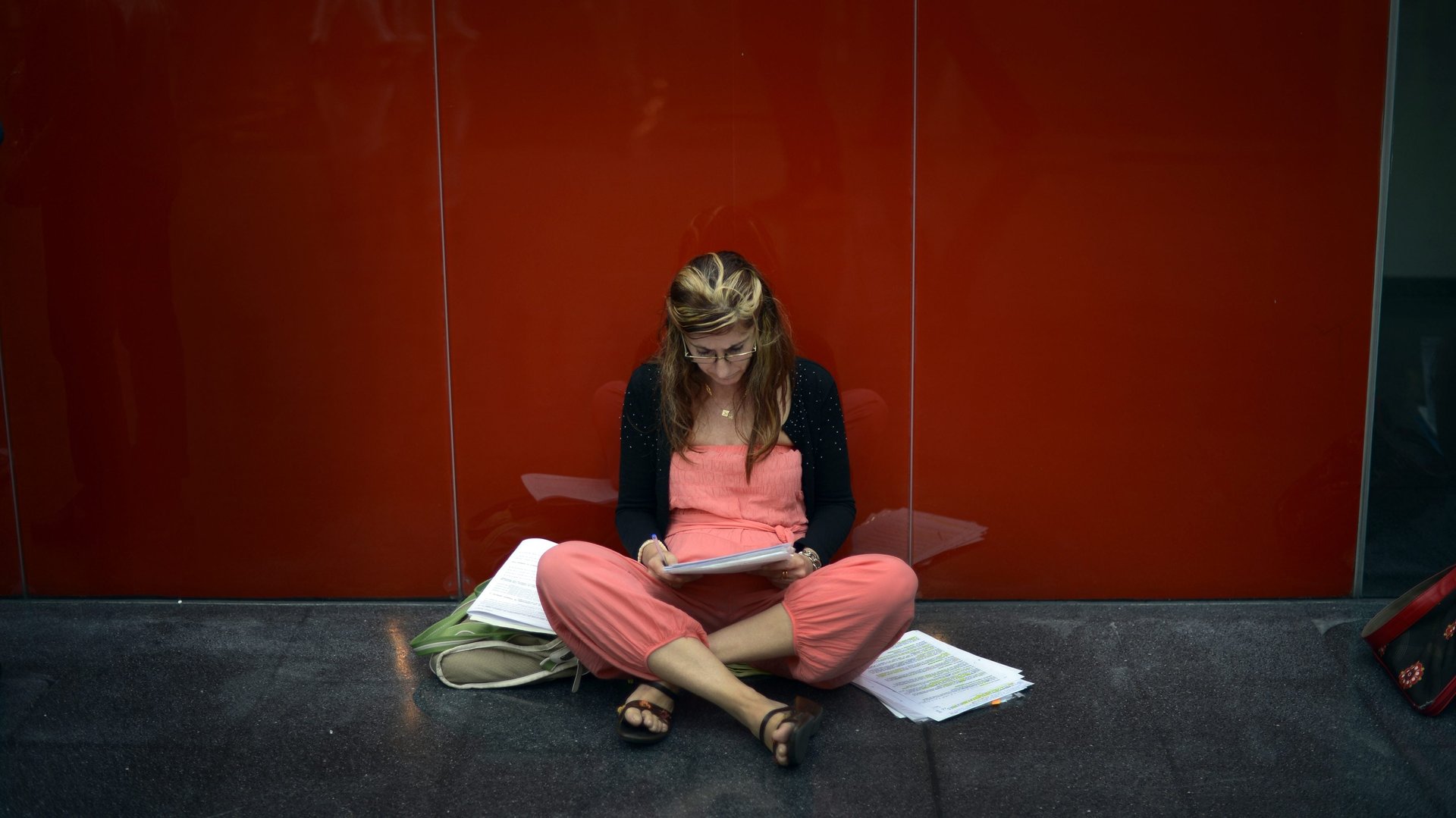Women gifted in math are still less likely than men to pursue it
Lack of women in technical jobs—engineering, architecture, and software development, to name just a few—is often described as a “pipeline” problem: Not enough girls are choosing subjects at school that would open up those careers, meaning that there aren’t as many female math and computer science grads as males for employers to hire, leading to a larger imbalance in those fields.


Lack of women in technical jobs—engineering, architecture, and software development, to name just a few—is often described as a “pipeline” problem: Not enough girls are choosing subjects at school that would open up those careers, meaning that there aren’t as many female math and computer science grads as males for employers to hire, leading to a larger imbalance in those fields.
Researchers are seeking to answer the question of why girls don’t choose those subjects. Is it simply a matter of skill—that women excel more in humanities and less in math, and that’s what guides their choices? Now a new, large study of students from Poland suggests that even when women have abilities as high or higher than their male counterparts, they still shy away from studying math at higher levels. In fact, the researchers found, young women who are gifted in math are both less likely to choose it than young men of the same skill level, and actually less likely to choose it than women with lower math scores. The researchers noted that industries that rely on technical qualifications are certainly missing out on gifted women.
Poland’s technical universities and program are heavily male-dominated, a pattern that repeats itself in other countries. In 2015, the researchers note, women accounted for 68% of Poland’s university student body overall, but less than 15% of its computer science students.
For the study, published in the June 2019 edition of the journal Sex Roles, researchers from the University of Bialystok and the Polish Academy of Sciences in Warsaw analyzed all the data on students sitting the compulsory Basic Exam in Mathematics, which takes place at the end of high school and forms part of the selection criteria for universities. The researchers compared men’s and women’s scores in the basic exam with their decisions to take Poland’s Extended Exam in Mathematics, which isn’t required to finish high school but is necessary to enroll in many technical programs and institutions. In total the researchers analyzed data from 261,132 students who took the Basic math exam in 2016.
What they discovered surprised them. The researchers had hypothesized that women overall would be less likely than men to take the Extended exam. But, they thought, women who scored best in the Basic exam—showing a gift for math—would be more likely to choose to take the higher level paper. They called this expected pattern “skill immunization,” the idea that a woman’s proven skill in math would inoculate her against the non-skill-based reasons for dropping math, such as women’s documented higher anxiety related to the subject, as well as factors like social norms, stigma, and lack of encouragement at school.
As the researchers predicted, women with average scores on the Basic exam were three times less likely than males with average scores to decide to take the extended exam. When it came to students with higher scores, the researchers noted, the “skill immunization” effect wasn’t in evidence; in fact, women with higher scores were slightly less likely to proceed to the higher exam than women with average scores.
Why are clever women self-selecting out of math? The study doesn’t seek to answer the question, but the researchers suggested some possibilities. On the one hand, there are factors pushing women away from choosing math. These include societal norms (which, the researchers notes as a limitation, could be different in Poland than elsewhere), and school environment (which they also controlled for.) On the other hand, there are pull factors: Women who scored well in another mandatory Polish exam that tests verbal skills were more likely than similarly-scoring men to eschew math for humanities.
“The interpretation of our results can, therefore, be regarded both in terms of ‘negative choice’ concerning mathematics and in terms of ‘positive choice’ concerning other fields,” the researchers wrote. “In any case, STEM majors are more likely to be losing mathematically-gifted women than mathematically-gifted men.”
This story is part of How We’ll Win in 2019, a year-long exploration of workplace gender equality. Read more stories here.